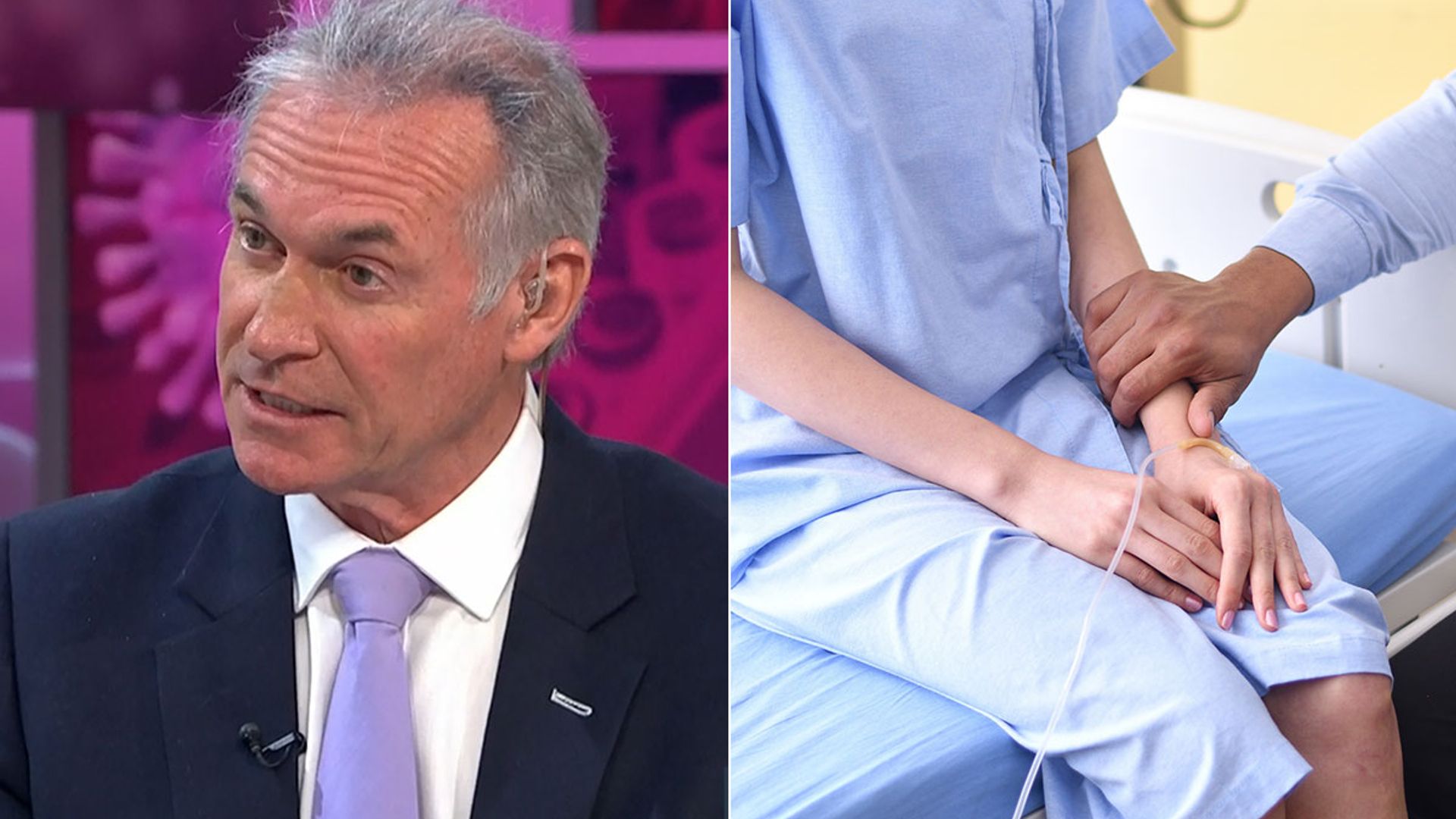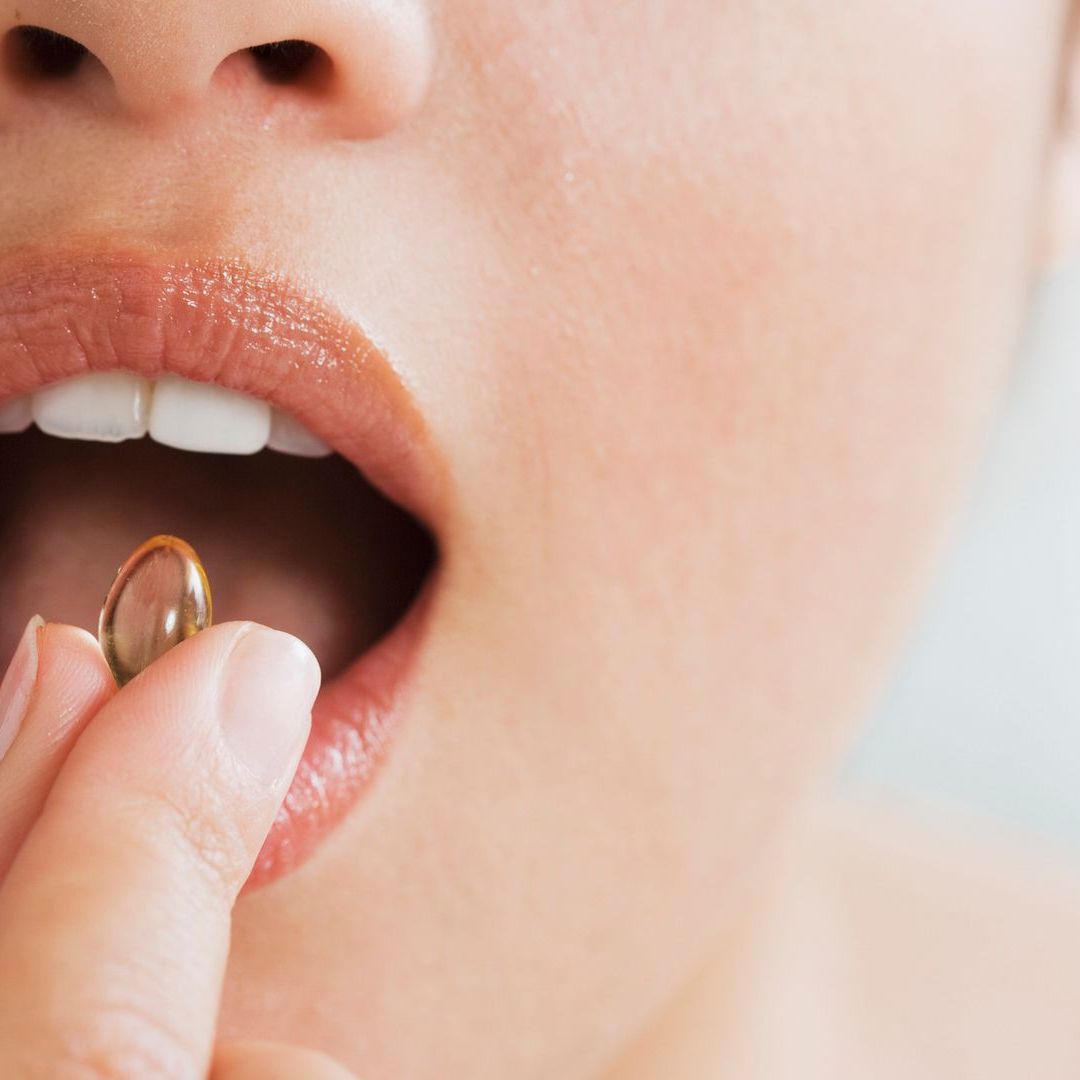Over the course of the coronavirus pandemic, many cancer sufferers avoided seeking urgent help and as a result, found themselves in a difficult situation. In a bid to encourage people to seek medical advice, the NHS have launched the Help Us Help You campaign.
MORE: 9 best supplements to help boost your health during lockdown
Good Morning Britain's Dr Hilary Jones is backing the NHS campaign, supported by Public Health England, urging people with potential cancer symptoms to come forward for lifesaving checks.
WATCH: Elizabeth Hurley saved two of her friends' lives after they were diagnosed with breast cancer
Read HELLO!'s Q&A with the medical expert which highlights the importance of watching out for symptoms of abdominal and urological cancers.
Exclusive: Dr Hilary details GMB colleague Kate Garraway's 'heartbreaking' journey with husband Derek
READ: My husband won't survive to see our children grow up without a blood stem cell donor
What are the most common symptoms of urological and abdominal cancer?
The NHS 'Help Us, Help You' cancers campaign focuses on raising awareness of cancer symptoms, including diarrhoea or discomfort in the tummy area for three weeks or more, or seeing blood in your pee - even just once. You should also speak to your GP if you notice any other unusual changes, like a need to pee more frequently or sudden urges to pee, a lump in the tummy area, post-menopausal bleeding, or unexplained weight loss, as these can also be signs of cancer.
The campaign is also raising awareness of lung cancer symptoms, so if you have a persistent cough for three weeks or more that isn't Covid-19, it could be a warning sign. Chances are it won't be anything serious but if it is, it's more likely you'll have more treatment options the earlier it's diagnosed, so contact your GP practice as soon as you can.
What are the stages of urological and abdominal cancer, and what do they mean?
Cancer staging is a way of describing the size of a cancer and how far it has grown. It enables doctors to check how large a cancer is whether it has spread into surrounding tissues and indeed to other parts of the body. It is important as it enables doctors to determine which treatment is the most suitable.
What's the treatment like for urological and abdominal cancer?
Treatment may take many different forms. It could be surgery if the cancer is localised or it could involve radiotherapy chemotherapy hormone treatments and many other approaches. Many people fear the treatment they may be offered but today the treatment is never worse than the cancer itself and is usually available in a tolerable and convenient form.
Dr Hilary urges those with potential cancer symptoms to come forward for lifesaving checks
When should I get tested for urological and abdominal cancer?
Screening tests for cancer are important and have saved many thousands of lives. Breast screening cervical smears and prostate screening for example especially in those with a family history is something I would recommend everyone to have when they are offered.
Testing should also be done when people demonstrate any symptoms and signs which could signify the onset of cancer. For example, if somebody noticed a cough for a few weeks (that isn't Covid-19), blood in their pee or a change in their normal bowel habit lasting more than three weeks or weight loss or anaemia for no explicable reason it should be investigated.
What are the short and long-term side effects of this treatment?
There are often some short and long-term side-effects of cancer treatments but usually, these are a small price to pay for the results of treatment and the possibility of obtaining a cure. For example, there is a downside to surgery in that there may be some post-operative discomfort and other side effects such as the need for a colostomy bag after bowel resection or a swollen arm if lymph glands have been removed after mastectomy.
Stephen Fry is backing the campaign
What long-term side effects or late effects are possible based on the cancer treatment I received?
Chemotherapy can cause temporary hair loss and nausea whereas radiotherapy can cause reddening and tightening of the skin. But the peace of mind that patients get knowing that their cancer is being treated and that it may save or prolong their life far outweighs the inconveniences of such side effects.
What lifestyle changes - such as diet and exercise - should someone make to be healthy before, during, and after treatment?
I think it’s really important for people to live as healthy a lifestyle as they can before during and after treatment. Regular exercise fresh air good nutrition and avoiding those things that we know are harmful such as too much booze and cigarettes keeps people in optimal health and also makes them feel that they doing everything they can to improve the prognosis. I include in this the spiritual benefits of love and laughter and keeping in close contact with friends and family.
Make sure you never miss a story! Sign up to our newsletter to get all of our celebrity, royal and lifestyle news delivered directly to your inbox.









